POTA Activation #23 - Lost River State Park (WV) (7/25/2022)
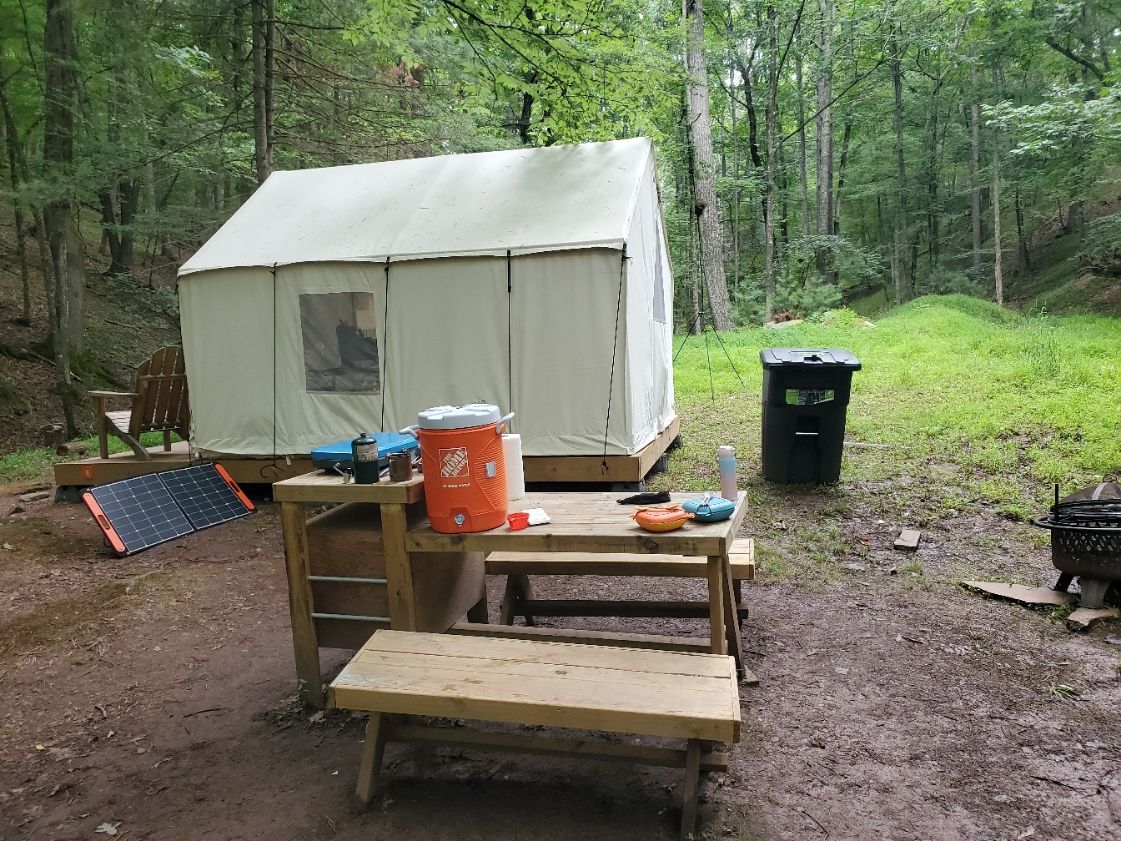
I have been having a lot of fun this Summer exploring new parks while doing POTA activations that I otherwise may have never visited. I get a kick out of reaching new milestones on my POTA profile, getting new states, more parks, and more contacts. Discovering new and unexpected natural beauty is also its own reward. When I activated the Lumber River State Park in North Carolina on a whim while driving home from a visit to Myrtle Beach, South Carolina, I took a look at my list of states activated and was thinking about ways to add more to the list.
On the week of 7/25 my daughter didn't have any Summer camps scheduled, so I decided to take the week off with her to go on camping trips and visit some amusement parks. The big question was "where to go"? We've always loved camping in Shenandoah National Park, but since I already activated it 3 times this year I went to the POTA web site and looked at other parks nearby. Just West of the VA/WV line I noticed a park that wasn't too far from home, but was in a state I had never activated before: West Virginia. The park was Lost River State Park and after a quick look at the park's web site I discovered that there were platform canvas tents available for rental and beautiful surroundings to be had. After consulting with my daughter I booked a tent and started to plan for our trip.
The plan was to get there Sunday afternoon, get situated, and spend two nights at the park. We left home during a heat wave where the heat index was in excess of 100 degrees Fahrenheit. When we arrived at Lost River State Park, the temperatures were absolutely delightful. I don't think it ever went above the low 80's and in the evenings the temperatures must have been in the 60s. The accommodations were quite nice for camping, with a bed and a sturdy and waterproofed canvas tent. This would be important for this trip as it would rain for much of our time at the park. Also at the campsite was a fire pit, a picnic table, and a standing table where you could cook with a cook stove.
After getting situated we went up to the main park offices and saw the big pool, which was to close in just 15 minutes. We asked what time it opened on Monday, but were disappointed to hear that it was closed. No pool for us at this park while we were there. After getting a bag of ice from the camp store to help our electric cooler make it for the two days we would be off the grid, it became clear that there were not many people in the park on this day. We practically had the place to ourselves. There were some clouds threatening, and they made good on their threats with rain and thunderstorms scattered throughout our stay. Thankfully our tent was up for the task and my daughter had packed lots of books and games for us to enjoy in the tent. Many a game of Uno and Sushi Go was played, so even though the hikes we had planned had to be skipped, we still had a great time together.
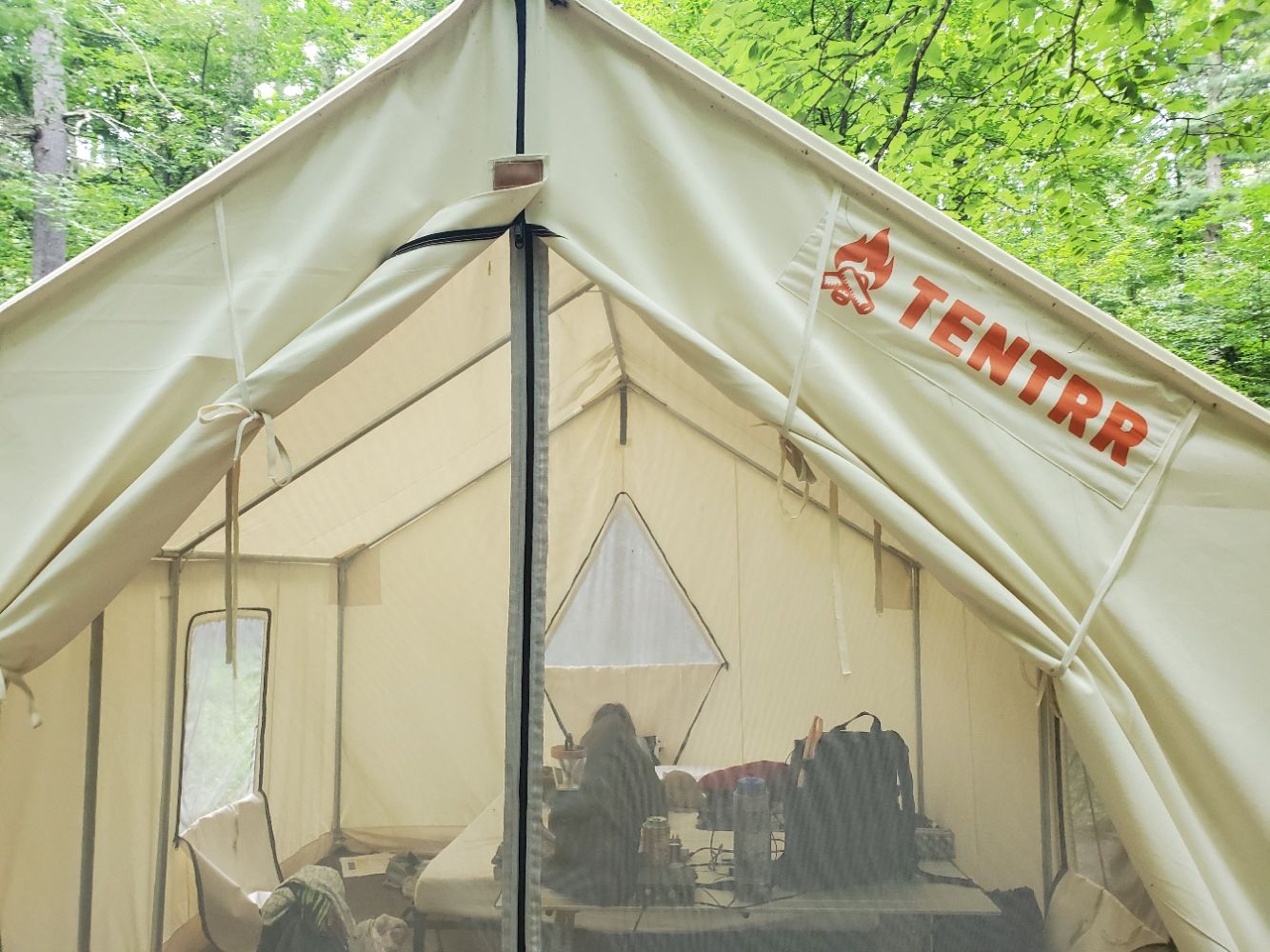
Once the new Zulu day had started, I decided to set-up my station in the tent to try activating the park. This would prove to be quite challenging, for several reasons. Due muddy conditions and tall vegetation, I elected to use the Buddistick Pro for my antenna. Our tent was large enough for me to setup everything else inside, which was very convenient. Our campsite was right in the middle of a valley between two very tall and steep hillsides. I was concerned about how my signal would get out with the topography. One of the biggest challenges was that I was fully reliant on the integration with the Reverse Beacon Network for spotting. I had scheduled my activation well in advance of my trip, but I didn't know what the cell service situation would be. Turns out, it was non-existent. Our phone (Verizon network) stopped working about a half hour before we made it to the park and we would not get a signal until we got back to Virginia after our stay. I hoped that the RBN integration would work, and my plan was to focus on CW, which would hopefully keep me near the top of the spots as I called CQ.
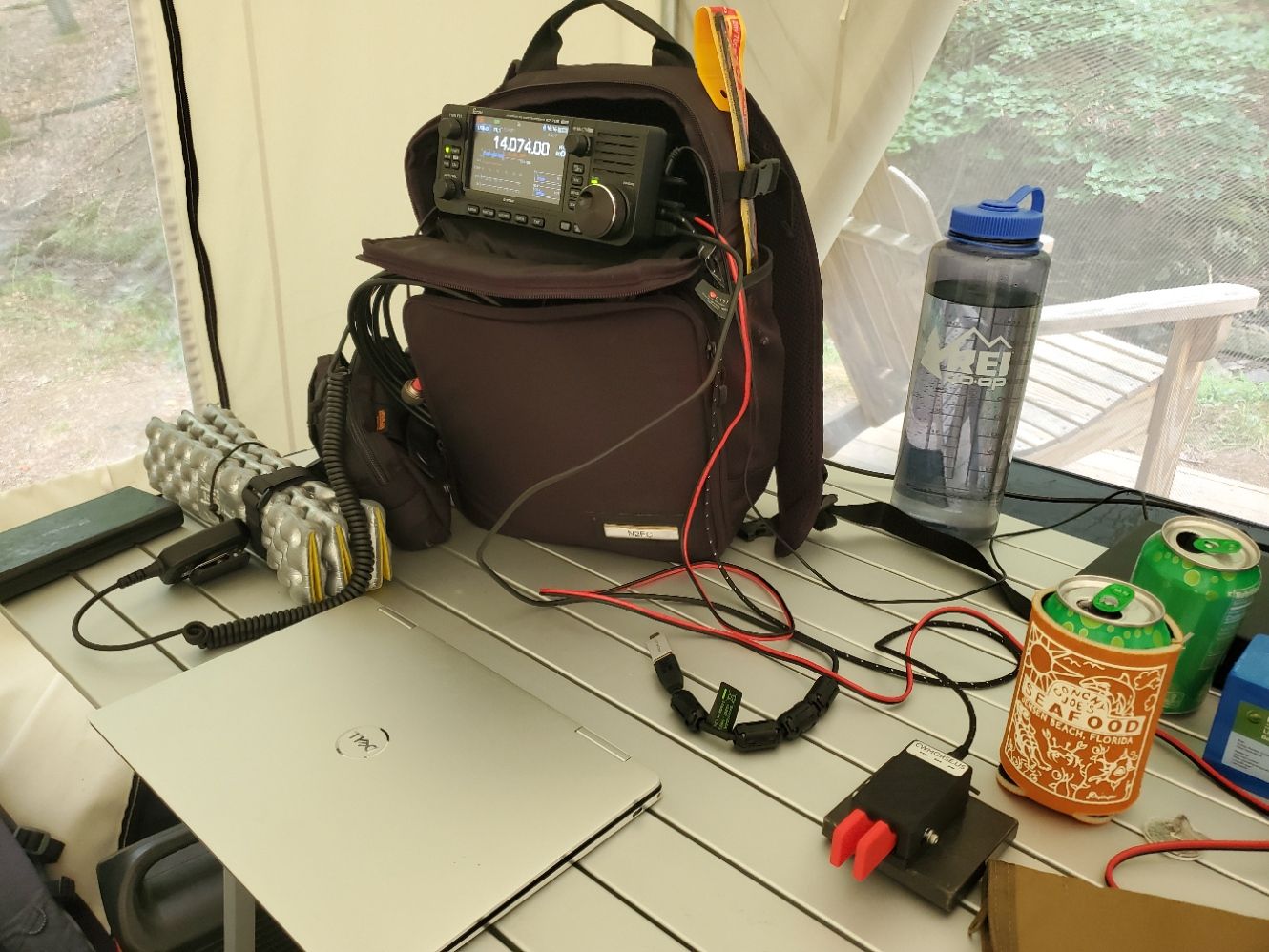
I decided to give 40m a try, given the time of day, and started calling CQ. After several minutes I got a response from a station near Atlanta and I thought to myself "Great, I've been spotted". That was not the case -- I should have asked the station to spot me. I continued calling CQ for nearly an hour and never got another call. Later I would look at the history on the RBN and would see that I had, in fact, been spotted on the RBN. So the integration with the POTA site must have been down (as sometimes happens). I was faced with the very real possibility that I might not be able to have a successful activation in West Virginia, after all. As darkness fell upon us, I decided to call it a night and see what the following day would bring.
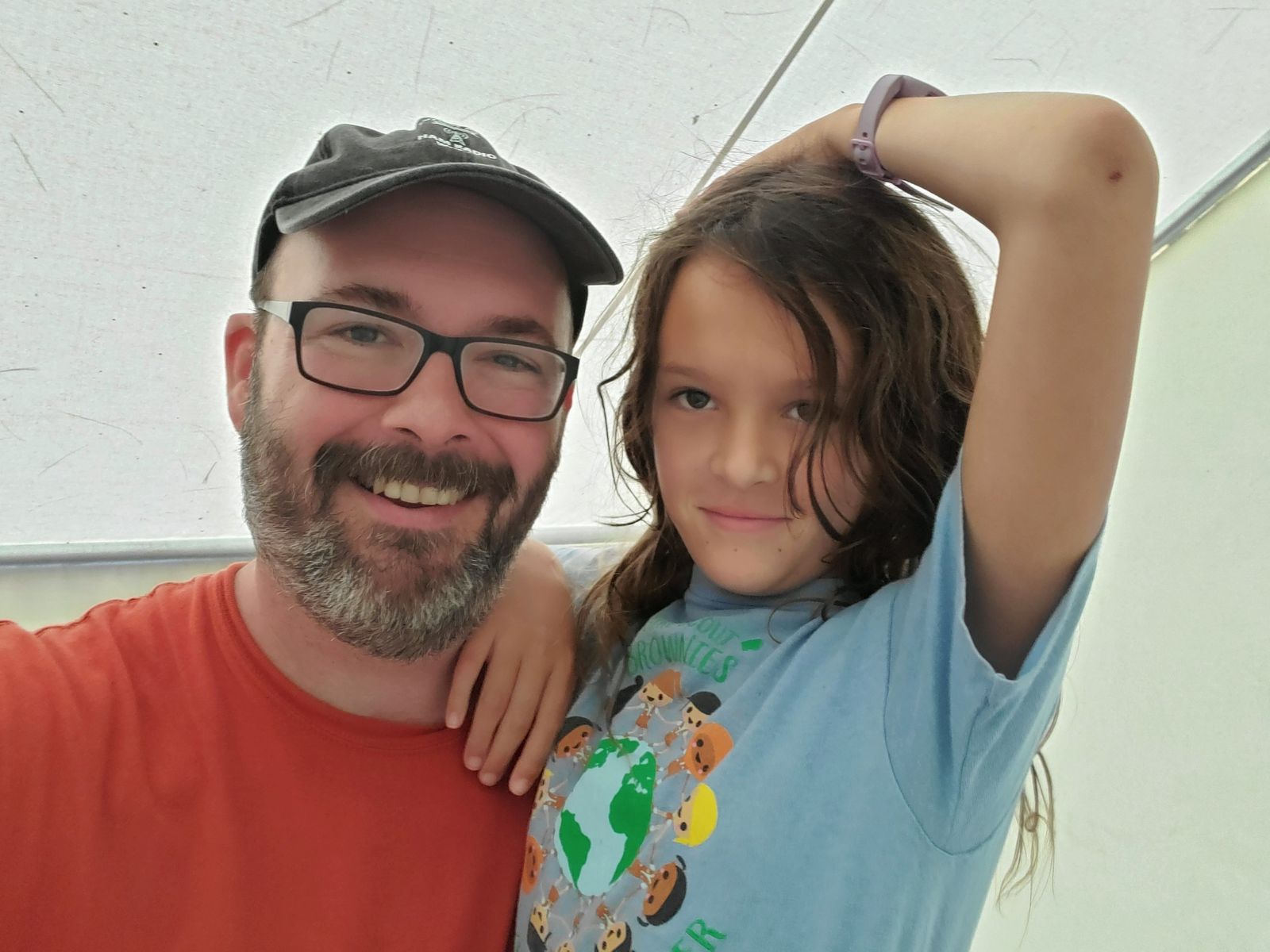
The next day we made a great big breakfast with pancakes, eggs, bacon, and hot chocolate for my daughter and coffee for me. It was a delicious feast. We attended to camp chores and did a little exploring around our campsite. The weather wasn't super cooperative, so we got in a lot of games and reading. While she read her books, I decided to give CW a go once again.
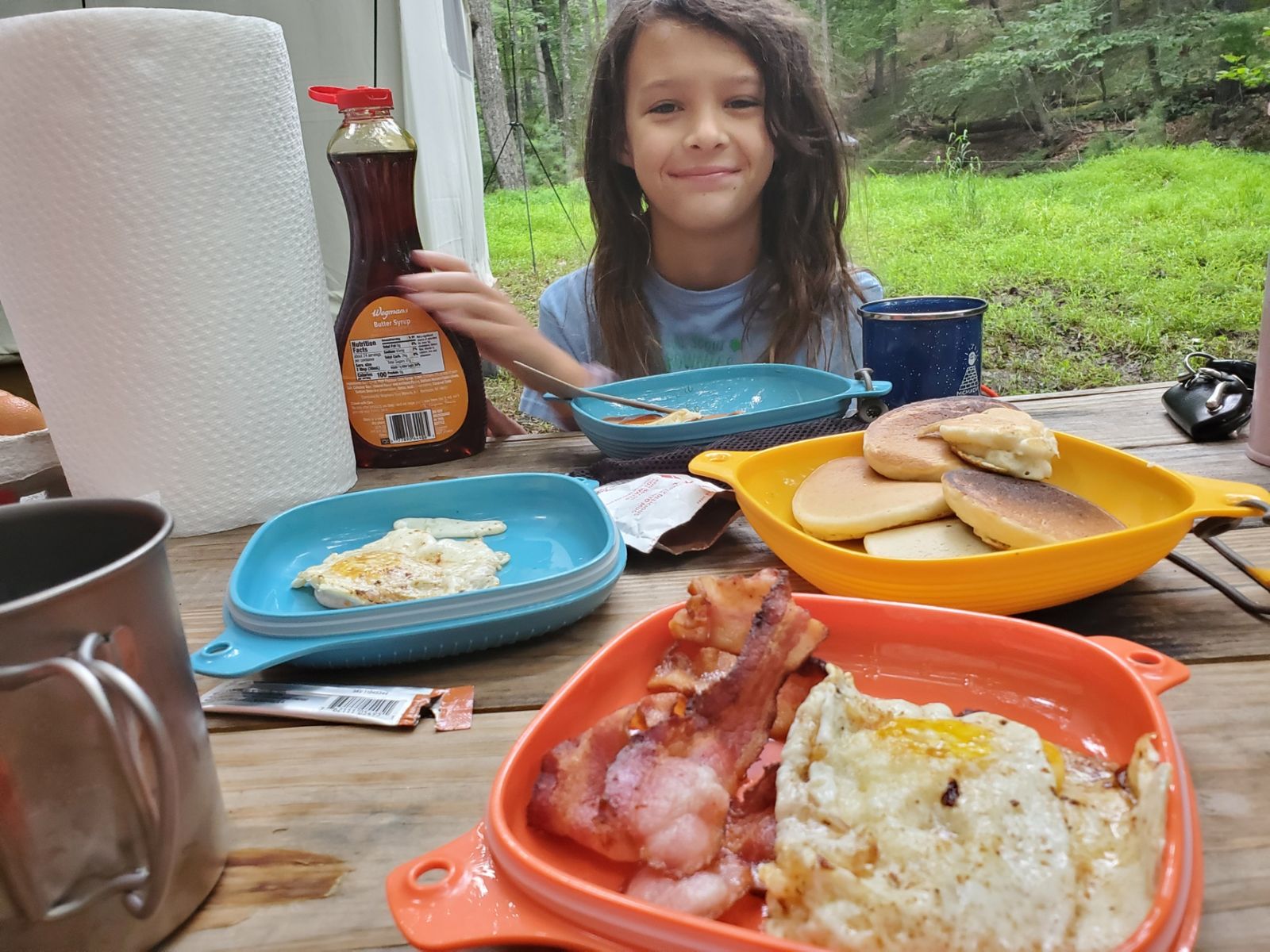
Once again, nothing. Not a single call. I had the one call the previous night, and knew it was down to Georgia ... so I must be getting out a little, right? Call after call went unanswered and I was beginning to think I was in an RF black hole. I switched over to 20m. With CW still fruitless, I decided to make the digital hail Mary pass and see if I could save the activation with FT8 before my laptop's batteries were depleted. I just needed to make 9 more contacts before the end of the Zulu day.
It was a slow start, but I eventually got a response from Wisconsin, then Virginia, Illinois, Georgia, Arkansas (Park to Park), Washington (state), Indiana, Michigan, and Ontario, Canada. 10 FT8 contacts in 46 minutes, a bit of a slog, but an activation saved nonetheless with 11 total contacts. I decided to leave well enough alone and skip doing a second activation in the park on the next Zulu day as I wasn't sure I would have enough power to complete another digital activation with my laptop and rig batteries. Instead my we focused on playing more games and enjoying our camp by the creek. Mission accomplished.
Lost River State Park was beautiful and surprisingly remote for how close it is to the Washington, DC area. I would like to go back and explore the trails it has to offer when it is less rainy. Even with the soggy conditions, the cool temperatures and quiet solitude were delightful. We had a lot of fun. If I were to attempt activating the park again, I would either set up the station near the ranger station (which has free wifi), get one of the cabins (which have wifi), or make very sure the RBN functionality is working.
The following morning we packed everything up and headed east for our second park, another new one to us in Virginia.
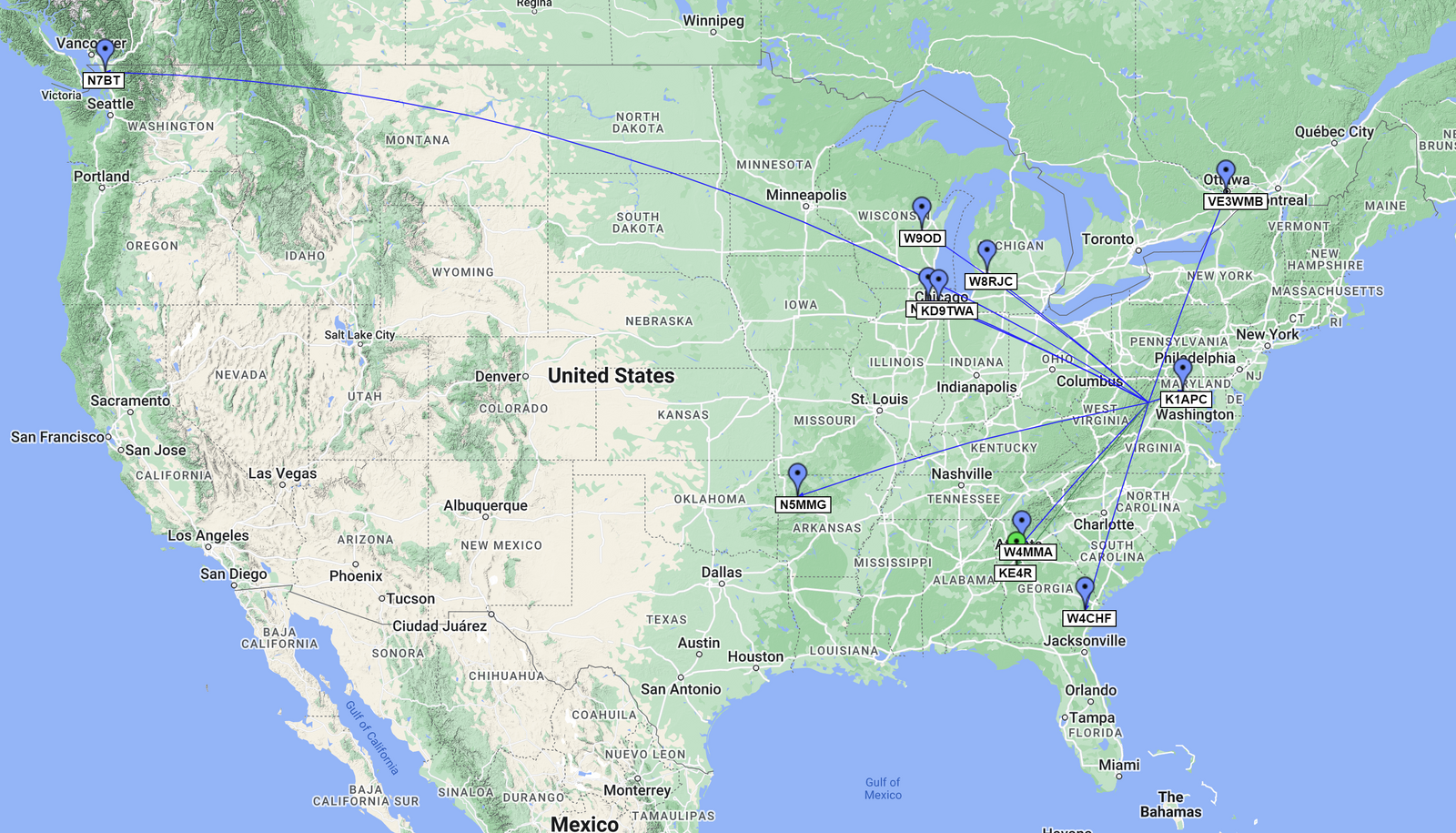
Activation QSO Map: Blue Pins = FT8, Green Pins = CW / Green Lines = 40m, Blue Lines = 20m
Gear used in this activation
- Icom IC-705
- Buddipole Buddistick Pro Antenna
- LDG Z100 Plus
- RigExpert Stick Pro Antenna Analyzer
- CW Morse Pocket Double Paddle Morse Code Key with Magnets
- CW Morse Steel Base for Pocket Paddles
- Icom LC-192
- Bioenno 12V 6Ah LiFePO4 Battery
- Sony Headphones
- Dell XPS 13 Laptop
- Rite in the Rain Notebook
- Zebra DelGuard Mechanical Pencil
- Jackery Explorer 500
- Hcalory 50L Portable Fridge/Freezer

